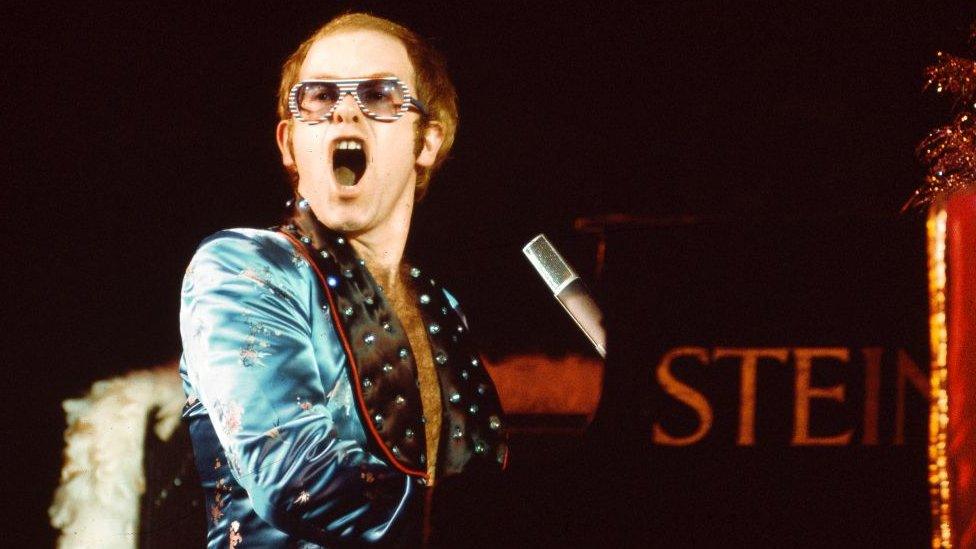Music industry 'should support struggling small gig venues'
- Published
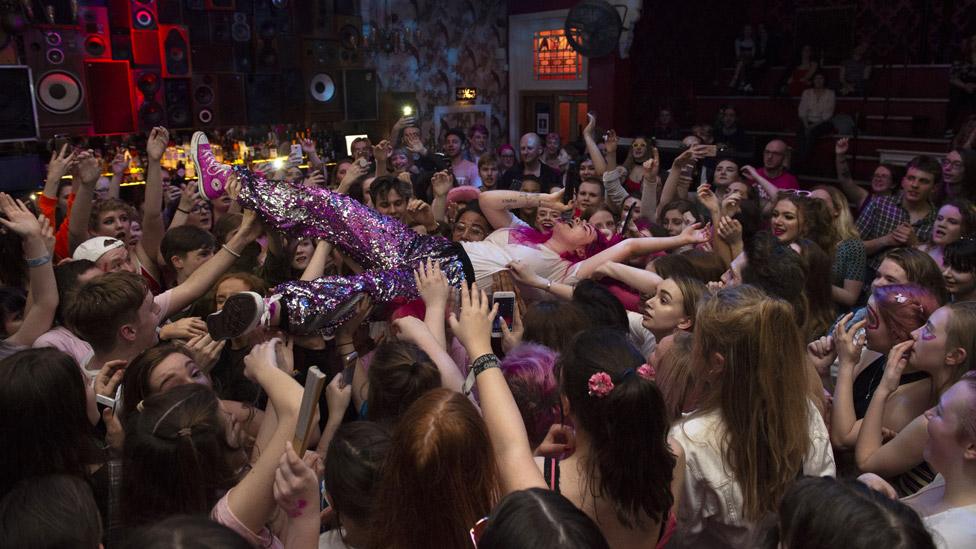
The Deaf Institute in Manchester was said to be under threat last summer before being bought
Record labels should help bail out small music venues that are struggling to survive during the pandemic, Greater Manchester mayor Andy Burnham has said.
Mr Burnham, a former culture secretary, called on the "big players" in music to pay a levy, just as football clubs contribute to grassroots facilities.
The recording stars who go on to sustain the industry often start in "critical" small venues, he said.
The industry would be "fundamentally weakened" if venues closed, he argued.
The Music Venue Trust says 30 venues are at imminent risk of permanent closure because of the pandemic, with hundreds more in trouble.
The BPI, which represents record labels, said it had co-ordinated £1.67m of donations to help artists and venues during the pandemic.
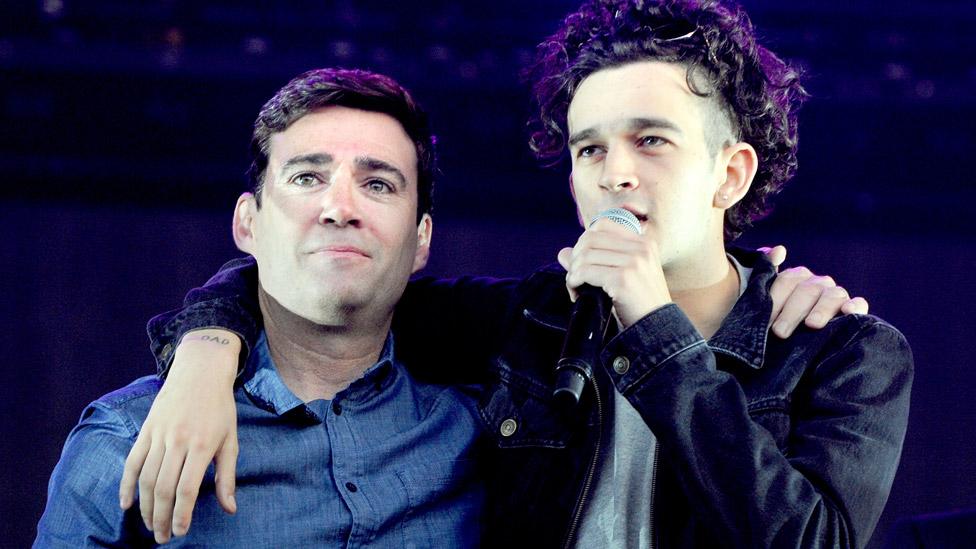
Andy Burnham with Matt Healy of the band The 1975
But Mr Burnham, a big music fan, told an event for Independent Venue Week, external: "The industry isn't stepping up.
"The industry needs to step up for you, and I think we should be mounting a case to say, the industry has to pay a levy to support grassroots venues, because that is their talent production ground. They are the junior football clubs of the country. That's where the talent comes through.
"There's an argument on the music industry, on the big players, that they need to pay a levy back to the industry at the grassroots."
Allowing venues to close would "be like closing junior grassroots football clubs and then expecting English football to still be strong", he said.
Mr Burnham suggested a system like the Football Foundation, which channels funds to community football facilities and which he helped set up in 2000. The Premier League and Football Association gave £53m last year, with another £18m contributed by the government.
The BPI said its £1.67m had gone to a range of charities and support organisations, including almost £60,000 to the Music Venue Trust. Its spokesman also called on the government to "prioritise the return of the live music sector as speedily and safely as possible" and support venues and festivals with an insurance scheme.
The government gave £3.36m to 135 grassroots venues from its £1.57bn Culture Recovery Fund in August.
Speaking before Mr Burnham's suggestion, the chief executive of trade association UK Music, which represents all parts of the music industry, said he was arguing for more support for venues.
Jamie Njoku-Goodwin said: "Once you take that [part of the industry] out of the equation it has a knock-on impact... on songwriters, rights holders, even record labels say to me they're really worried about what's happening with live music because it affects them in five or 10 years' time. It's a talent pipeline issue."
The music world should "make sure that as an industry we can be doing everything we can to be supporting all bits of the industry", he added.
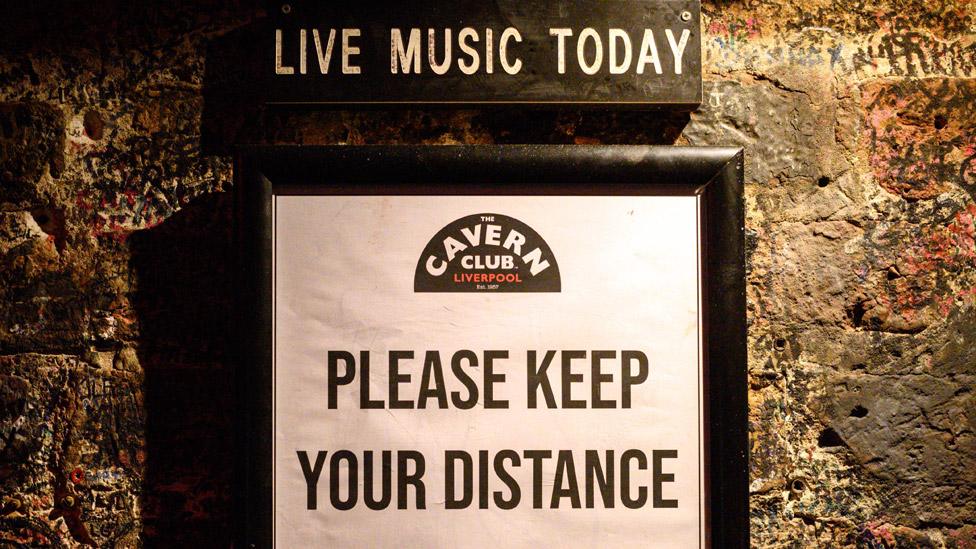
Some venues briefly reopened in the summer, only to have to shut again
"We shouldn't see it as a charity case or something that people should be doing just because it's a nice thing to be doing. There's quite a hard-nosed argument that I'm trying to make to people - that it's in their own interests to be supporting these venues."
During the pandemic, talent scouting has moved largely onto social media. "Scouting is often online, particularly during Covid, when we have not been able to see concerts," David Joseph, UK boss of Universal Music, told MPs earlier this month.
Mark Davyd, who runs the Music Venue Trust, supported Mr Burnham's plan and said some European countries tax parts of the music industry to fund grassroots music development.
"We would rather see the industry organise itself into such a model," he said. "We believe the skills and expertise available in our industry could quickly develop such a programme to be an effective model of investment into new talent.
"We think it is preferable if our industry takes control of this opportunity itself but we understand why the government and politicians will take an interest in it if we are not able to do so."
Related topics
- Published27 January 2021
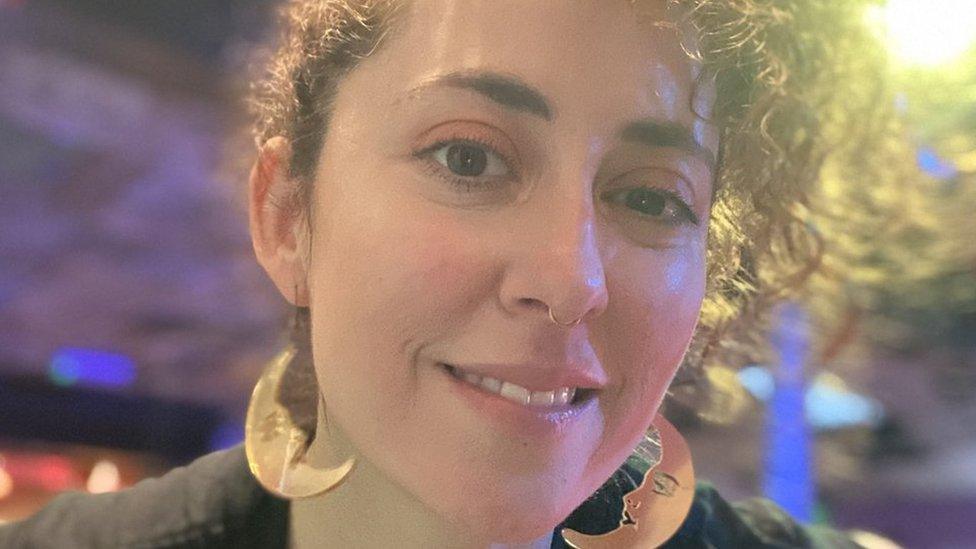
- Published14 January 2021
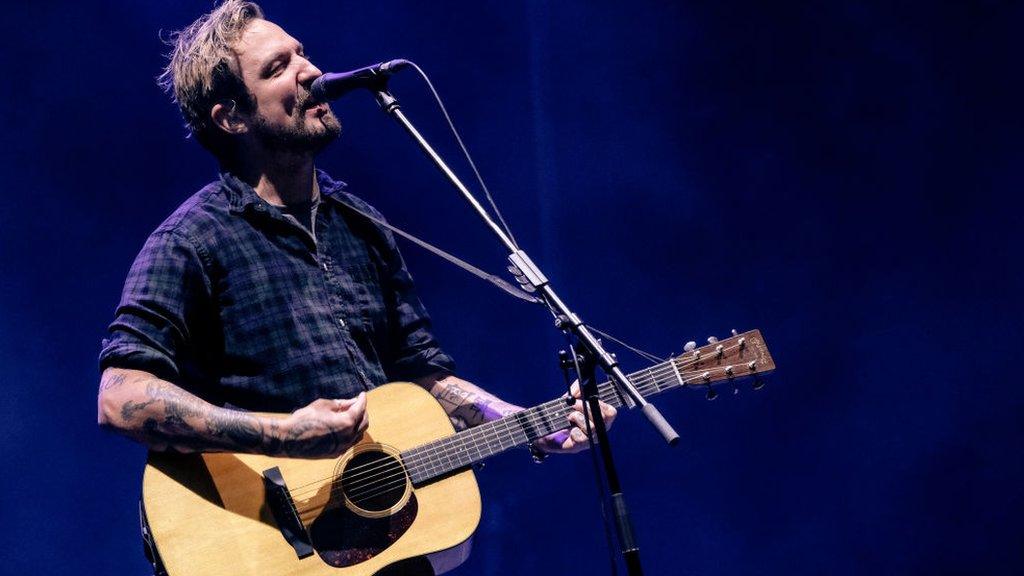
- Published7 January 2021

- Published29 December 2020

- Published19 September 2020
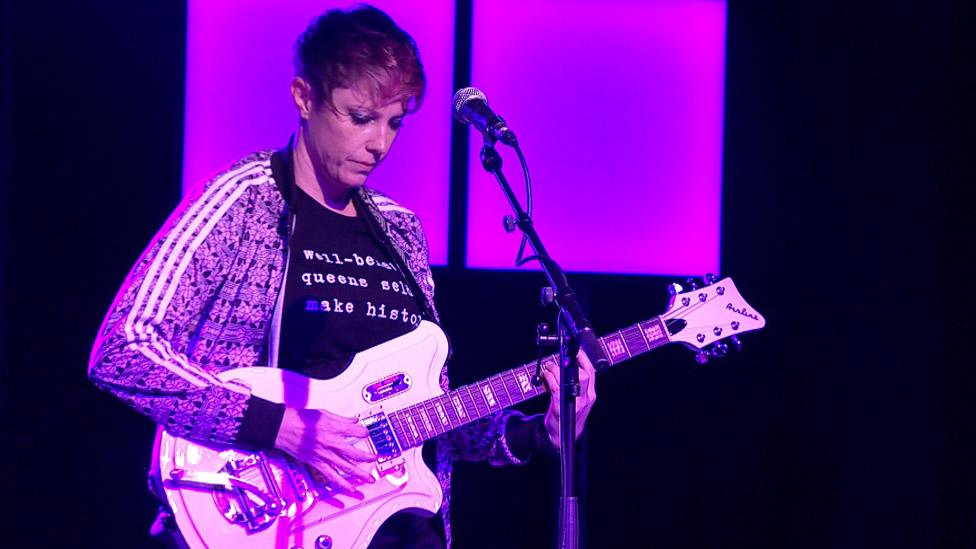
- Published26 August 2020
